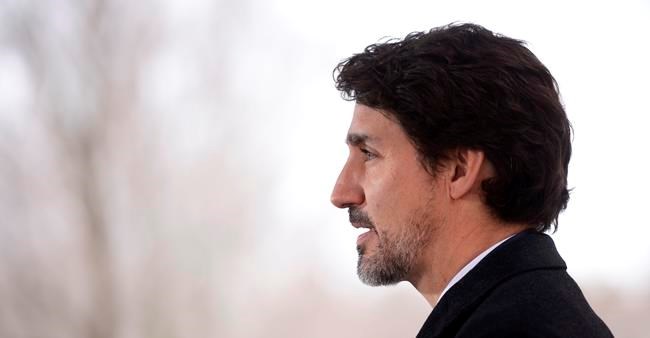Governments across Canada showed signs of settling in for longer periods of physical distancing on Tuesday as they stepped up efforts to protect the country's most vulnerable residents from the ravages of the COVID-19 pandemic.
As at least two provinces extended plans to keep schools closed in a bid to slow the spread of the virus, federal officials expressed concern about the effects the disease is having on groups ranging from health-care workers to prison inmates.
Prime Minister Justin Trudeau announced $2 billion in government funding to purchase much-needed personal protective equipment for the country's front-line medical staff, adding the feds were preparing for worst-case scenarios in their efforts to ensure key equipment is in place across the health-care system.
Less than an hour later, Canada's top public health official sounded the alarm about the effect COVID-19 is having on marginalized groups.
"Of greatest concern at the moment relates to the introduction and spread of the virus in enclosed settings where vulnerable people reside," said Dr. Theresa Tam. "We currently have a number of ongoing outbreaks in long-term care homes, cases in First Nations and Inuit communities, and in corrections facilities."
One of the worst of those outbreaks is unfolding at a nursing home in Ontario, one of the provinces hardest hit by the outbreak. At least nine residents of the Pinecrest Nursing Home in Bobcaygeon, Ont. have died in recent weeks, according to the local health authority, which says the disease caused by the novel coronavirus has also infected at least 24 staff members.
Deputy Prime Minister Chrystia Freeland, meanwhile, signalled an outbreak among health-care workers who live in Ontario but work in the United States. She referenced cases in the border city of Windsor, Ont., but few details were immediately available.
Medical workers are currently among the few people permitted to cross the border after both Canada and the U.S. reached a mutual agreement to severely curtail traffic between the two countries.
The outbreaks in Ontario were just the latest sign that life in the province would not return to normal for some time, a sentiment confirmed on Tuesday afternoon when the government announced that schools would remain closed at least until May 4.
The Manitoba government went one step further, as Education Minister Kelvin Goertzen announced classes would be suspended indefinitely unless public health officials advise they can safely resume.
Teachers across the country have been moving course materials online in the weeks since the COVID-19 outbreak upended everyday life in much of Canada.
Meanwhile in Quebec, the province with the highest number of COVID-19 cases nationwide, Premier Francois Legault warned of a looming shortage of medical equipment needed to fight the pandemic.
He said certain types of medical supplies could be depleted in anywhere from three to seven days if not replenished soon.
Health authorities have reported more than 8,400 cases of the virus in Canada, including 95 deaths.
This report by The Canadian Press was first published March 31, 2020.
Michelle McQuigge, The Canadian Press



